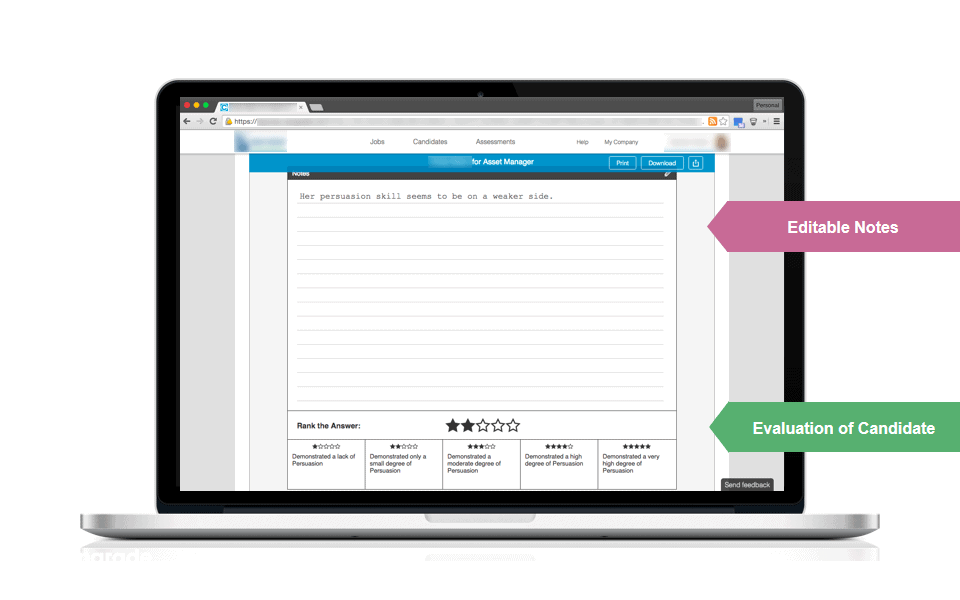How Science Helps You Hire Better: 3 Top Tips for Effective Interviewing
What works best to spot your next star performer? Here are three scientist-tested tactics to use for effective interviewing that will get results.
Prepare Structured Interview Questions for an Effective Interview
Asking all candidates the same specific questions keeps answers relevant and draws a complete picture of each candidate. It also allows for direct comparison later among candidates. This increases the validity of the job interviews. It mitigates any potential biases (whether based on demographics, familiarity, or just recency of the interview).
Need some inspiration? Try one of these two proven effective question formats at Job Top Gun:
- Behavioral: Ask candidates about a previous situation where they demonstrated a basic competency relevant to the job. This allows insight into the candidate’s thought processes and past performance.
- Situational: Ask candidates what they would do in a specific hypothetical situation that they are likely to encounter on the job. This allows for an assessment of future performance even if the candidate’s past experience is not directly relevant to the position.
Ignore the Noise
Information collected during the application process (such as resumes, test scores, or letters of recommendation) can differ widely due to a variety of factors. These factors may have nothing to do with the caliber of the candidate, and, as such, may lead to bias. Once a candidate makes it to the interview stage, it is best to assume that they have the basic qualifications for the job and ignore this supplemental material during the interview.
It is also easy to get caught up in “small talk” with a candidate you get along with. It is important to avoid this for effective interviewing because you may want to hire someone you like and share interests with, rather than the candidate who is the best fit for the job.
Including at least two interviewers also helps obtain more relevant and focused information from candidates. This ensures that one person’s bias doesn’t make or break an interview.
Take Detailed Notes in All Job Interviews
Note-taking creates a professional atmosphere for the interview and allows a candidate to feel respected, listened to, and encouraged—while minimizing the necessary amount of eye contact and other body language that can bias interview outcomes.
Notes also help us remember specifics objectively. The things that interviewers remember later, without notes as a memory aid, are not necessarily the most important or relevant aspects of the interview. There is a limit to human memory. We remember the beginning and end of things much better than everything in between. We can also more easily recall emotional content (such as if something was funny or sad).
Similarly, notes will help you avoid hiring someone simply based on a gut feeling of “fit”. This is not a legally defensible strategy in the United States. Instead, notes help interviewers stay focused instead on specific competencies, behaviors, skills, or experiences that the candidate recounted.
At a bit of a loss for where to start?

Cangrade’s Structured Interview Guides are a great way to make sure to incorporate all of these methods in your upcoming job interviews. We work with your team to create a customized Structured Interview Guide designed to help you evaluate the strengths and weaknesses of each candidate that are most relevant to success on the job. Setting you up for effective interviewing from the start.
Click here to put Cangrade to work finding your next great hire!